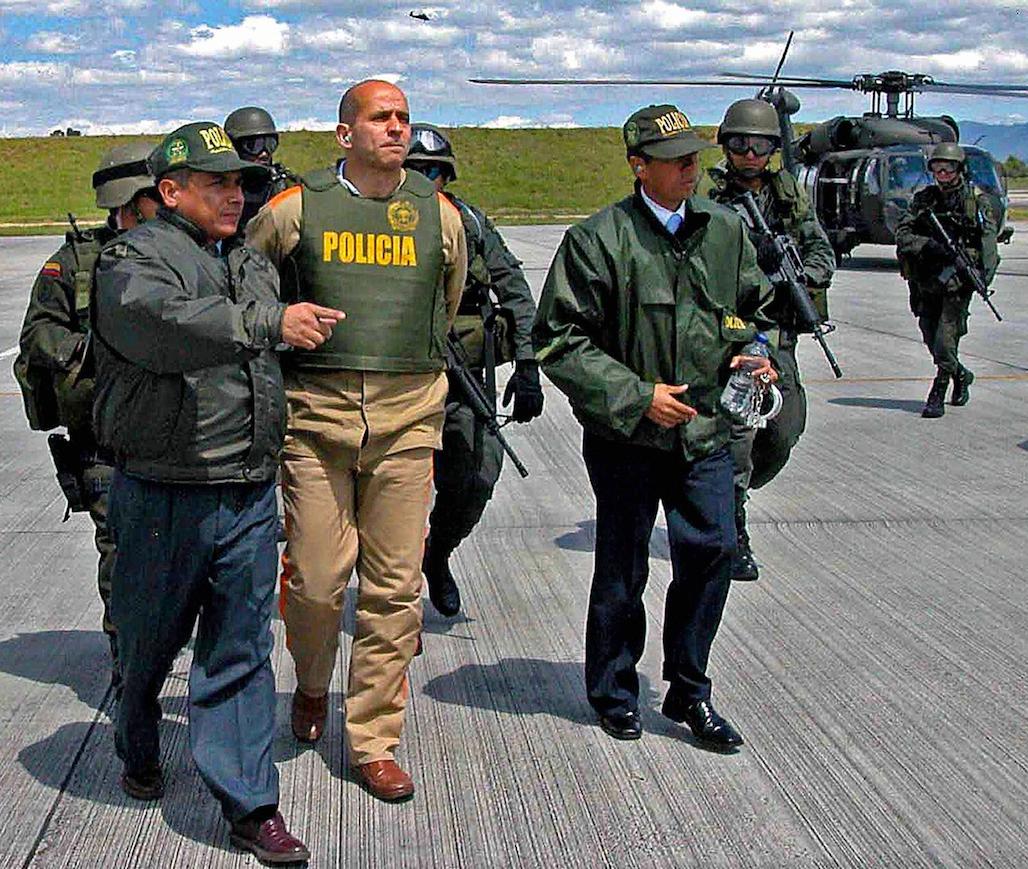FARC rebels name 3 delegates to peace talks with Colombian government
This Dec. 31, 2004 photo shows police officers escorting the leader of the rebel Revolutionary Armed Forces of Colombia, ‘Simon Trinidad’ (second from left) at a Colombian military airport in Bogota. FARC leaders have named Trinidad, whose given name is Ricardo Palmera, as one of three delegates they want to attend peace talks with the government on Oct. 8, 2012, in Norway.
The leftist Revolutionary Armed Forces of Colombia, or FARC, have named three negotiators who will sit down for peace talks with delegates of the Colombian government in October, the Associated Press reported.
One of them is a "high-ranking guerrilla known as Simon Trinidad who is currently imprisoned in the United States," according to the AP. Trinidad's given name is Ricardo Palmera. He was sentenced in the US to 60 years in prison on hostage-taking conspiracy charges after being extradited there in 2005.
The other FARC negotiators are Ivan Marquez, part of the group's secretariat who has taken part in previous peace talks, and Jose Santrich, "a second-tier leader," according to the AP.
Members of the rebel group said Thursday that they will seek a cease-fire when they meet with government negotiators in Norway, AFP reported. However, the Colombian government has indicated it is unlikely to agree to one, according to AFP. Norway will host the talks before they move to Cuba, according to Reuters.
The Colombian government on Wednesday announced five delegates who will attend the talks.
The FARC is responsible for Latin America's longest-running insurgency and has been at odds with the Colombian leadership since the 1960s. Their forces currently number at about 8,000, Reuters said.
Talks between the rebels and the government have been attempted previously. The Christian Science Monitor reported that the rebels have sat down three times in three decades to peace talks with leaders, to no avail.
More from GlobalPost: FARC Decoded: What do the peace talks really mean?
But the rebels' current weakened status may change the balance to make negotiation now more fruitful. This is the first time ending the conflict will be up for discussion, according to the Monitor.
Aldo Civico, founder of the International Institute for Peace at Rutgers University who has experience facilitating peace talks in Colombia, said in a press release, "The moment is ripe in Colombia for a negotiated solution to the five decade long armed conflict." That's mainly because the two sides have reached a stalemate, a point at which neither benefits from continued conflict as much as they might from resolution.
"A peace process in Colombia will be successful if the parties at the table will have a firm commitment to end the armed conflict, and will not exploit it, as it happened in the past, as an opportunity for short term political gains," Civico said.
Hear more analysis of the peace talks from GlobalPost's Latin America Editor Alex Leff in this video:
